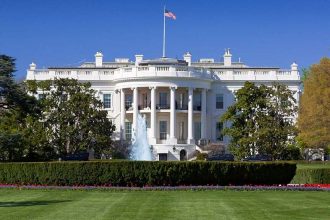Outgoing U.S. President Joe Biden paid a rare visit to the African nation of Angola on December 3. What’s behind Biden’s charm offensive?
“American interest in Africa can unfortunately only be viewed as a countermove to both China and Russia and nothing less,” Professor Fulufhelo Netswera, Executive Dean of the Faculty of Management Sciences at Durban University of Technology in South Africa, told Sputnik. “And with Russia winning the hearts of the Sahel, the Western concern continues to grow.”
Netswera said that the West is slowly but surely losing a grip on Africa both politically, diplomatically, and economically.
He noted that China has become Angola’s largest trading partner. The total trade volume between the two countries reached $23 billion in 2023, according to the Chinese General Administration of Customs. China imports oil from Angola and exports electromechanical and steel products to the African nation.
India is Angola’s second-largest trading partner, whereas the U.S. doesn’t feature even in the top five, Netswera said. When it comes to military-technical cooperation, Angola has signalled its intention to develop closer ties with Russia.
“Biden’s presidency has been about wars in Ukraine and Israel and nothing more to show”, the professor stressed. “He may want to be remembered for having done something with African countries, but it is too little too late.”
Though many analysts see Biden’s visit as too late, it is seen as a test case for U.S. ambitions to counter Chinese influence in Africa, where the Chinese government, under the Belt and Road Initiative, has funded many megaprojects like airports, highways, hydroelectric dams, and railways.
Angola got billions of dollars from China for its infrastructure development after a decades-long civil conflict ended in 2002, and it used oil exports to pay back those loans until 2017 when the late Jose Eduardo dos Santos was president.
The U.S. investment in Angola is part of the Group of 7’s Partnership for Global Infrastructure and Investment, which seeks to give US$600 billion in global infrastructure by 2027.
The United States, G7 allies Italy, and the European Union are investing in the Lobito Corridor, a commercial route connecting Angola’s Atlantic Port of Lobito to Zambia and the Democratic Republic of the Congo via a new and restored railway, among other projects.
The Lobito Atlantic Railway would transport minerals required for renewable energy production while boosting regional trade and development through improved access to global markets.
Other U.S. infrastructure initiatives include:
- Loans totalling $2.5 billion will be used to build solar power plants, mini-grids, and energy storage facilities to deliver clean power to Angola.
- Guaranteeing a $363 million loan for the construction of 186 modular steel bridges needed to modernize Angola’s road system.
- A $1 million grant will be given to the Angolan Ministry of Transportation to develop a public-private partnership to manage additional investments in the port and railway.
The U.S. has also invested heavily in Angola’s health system, especially in the fight against HIV/AIDS and malaria. The U.S. President’s Emergency Plan for AIDS Relief (PEPFAR) aims to end HIV/AIDS as a public health threat by 2030 by providing HIV/AIDS-related treatment for 24,847 children and adults, eliminating HIV/AIDS medication shortages and training over 400 lab technicians.
The U.S. President’s Malaria Initiative has invested $415 million in Angola since 2006. It funds malaria testing and treatment, as well as treated bed nets.















